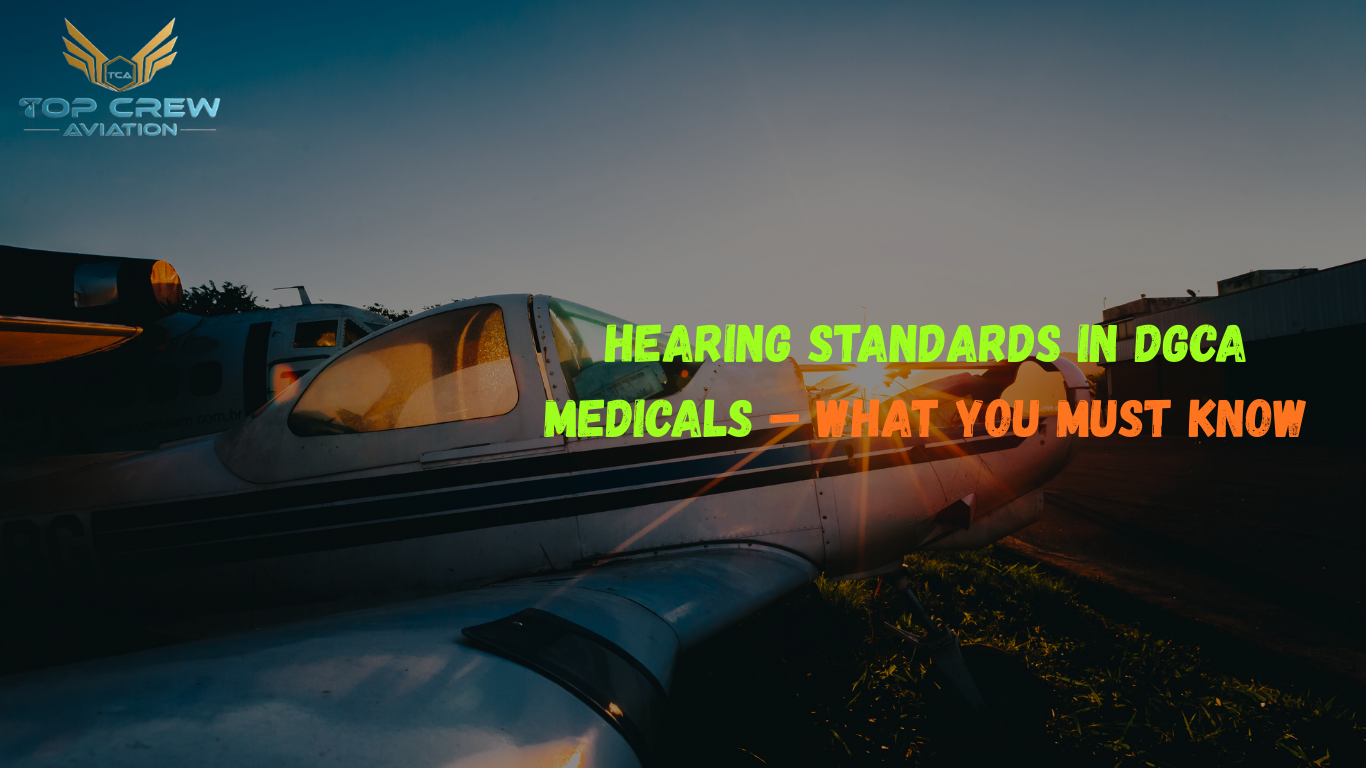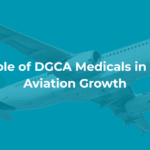
Why Hearing Is Critical in Aviation
A pilot’s ability to hear and interpret instructions correctly is vital to flight safety. In noisy cockpit environments, even a slight hearing deficit can lead to miscommunication and errors. This is why the DGCA has set clear benchmarks for hearing standards in its Class 1 and Class 2 medical examinations. Whether you are starting your journey as a Student Pilot License (SPL) holder or upgrading to a Commercial Pilot License (CPL), your hearing fitness will be evaluated.DGCA Hearing Standards
According to DGCA guidelines, candidates must demonstrate normal hearing ability, sufficient to:- Understand conversational voice at a distance of 2 meters with each ear separately, with the other ear masked.
- Successfully pass audiometry tests if required, especially for those with borderline results in basic hearing checks.
- Show no history of chronic ear disease, ear surgery, or recurrent hearing loss that may affect performance.
Tests Conducted for DGCA Hearing Assessment
During the medical examination, the following tests are usually performed:1. Conversational Voice Test
This is the basic screening test. The doctor will check if you can hear conversational speech at a standard distance (usually 2 meters). Each ear is tested separately.2. Pure Tone Audiometry (PTA)
If the conversational test shows any doubt, you may undergo audiometry. In this test:- Sounds of different frequencies (250 Hz to 6000 Hz) are played.
- You respond by pressing a button when you hear the sound.
- The test plots your hearing threshold levels on an audiogram.
3. Additional ENT Examination
If you have a history of ear issues such as infections, wax build up, or tinnitus, an ENT specialist may be consulted. Read Also – Why DGCA Medicals are the First Step in Your Pilot JourneyCommon Reasons for Failure in DGCA Hearing Tests
Some candidates are declared temporarily unfit due to correctable conditions. The most common reasons include:- Earwax blockage affecting sound conduction.
- Temporary ear infections or fluid in the middle ear.
- Noise-induced hearing loss from prolonged exposure to loud sounds.
- Unreported past ear surgeries or perforated eardrum.
Tips to Prepare for Your DGCA Hearing Test
To ensure you clear the medical smoothly, keep the following in mind:- Get an ENT Check-Up Beforehand – A quick visit to an ENT specialist can detect wax, infection, or other issues that might affect results.
- Avoid Loud Noises – Refrain from prolonged exposure to loud music or headphones before the test.
- Treat Any Ongoing Infections – Even a common cold can impact middle ear function, so schedule your medical after recovery.
- Be Honest About Medical History – Concealing previous surgeries or ear problems may cause complications later.
How Top Crew Aviation Supports Aspiring Pilots
Preparing for DGCA medicals, especially hearing standards, can feel overwhelming. This is where Top Crew Aviation comes in. As one of India’s leading pilot training academies, Top Crew Aviation provides:- Expert guidance on DGCA medical requirements, including hearing tests.
- Pre-medical counseling to help students identify and resolve issues before official examinations.
- Comprehensive pilot training programs that cover everything from Class 2 and Class 1 medicals to ground classes and flying training.
- Personalized mentorship to ensure aspiring pilots are physically fit, medically ready, and mentally confident before stepping into their careers.
Conclusion
Clearing the DGCA hearing standards is a key milestone in your aviation journey. While the tests may seem challenging, most candidates with normal hearing pass without difficulty, and even minor issues are often treatable. The key is preparation, early medical check-ups, and professional guidance. With the dedicated support of Top Crew Aviation, aspiring pilots not only get expert help for DGCA medicals but also receive comprehensive training for a successful flying career. Stay proactive about your health, trust the process, and keep your eyes on the skies—because your dream of becoming a pilot is well within reach.Frequently Asked Questions
What is the minimum hearing requirement for DGCA medicals?
You must be able to hear a conversational voice clearly at a distance of 2 meters with each ear separately. If required, you may also need to pass an audiometry test with normal hearing thresholds (up to 20–25 dB).
Do all pilot candidates have to undergo an audiometry test?
Not always. Audiometry is usually done if the initial conversational voice test shows doubts or if you have a history of ear problems.
Can earwax or infections affect my DGCA hearing test?
Yes. Blocked ears, wax buildup, or even temporary infections can lead to failed results. Thankfully, these are usually treatable, and you can retake the test after recovery.
What happens if I fail the DGCA hearing test?
If your condition is temporary and treatable, DGCA will declare you temporarily unfit and allow a re-exam. Permanent hearing loss may, however, affect eligibility.
How can Top Crew Aviation help with DGCA medical preparation?
Top Crew Aviation provides expert pre-medical counseling, guidance on hearing standards, and complete training support. With their help, many students have cleared DGCA medicals smoothly and continued toward their pilot careers.



